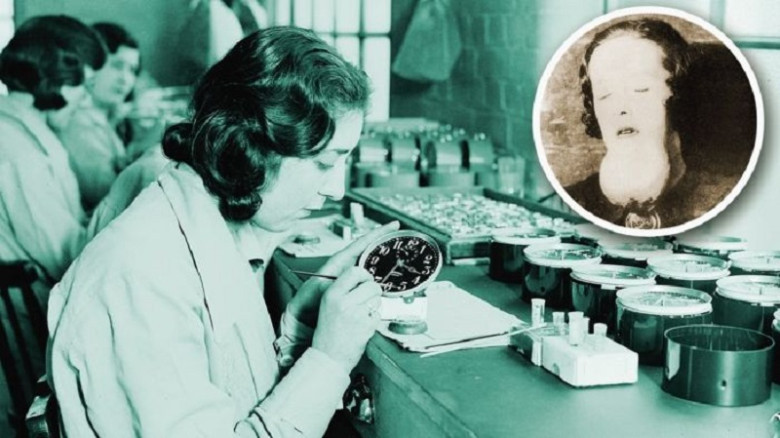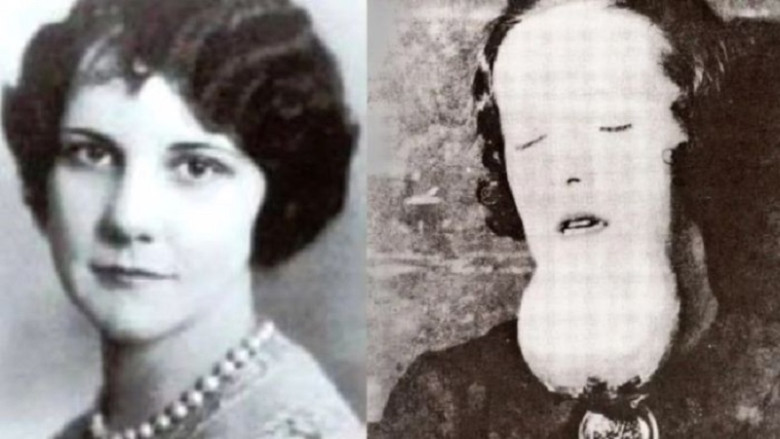The Radium Girls: A Tale of Tragedy and Injustice
In a small town in America in 1917, a group of young women eagerly embarked on a new job at a watch factory in Orange, New Jersey. The allure of almost three times the usual pay was irresistible to them, coupled with the promise of easy work. Their task was simple: to apply fluorescent paint containing radium to watches and military instruments manufactured by the United States Radium Company.

As soon as the first coat of the luminous paint was applied, the hands of these young women took on a mysterious glow. The watches and instruments they painted emitted the same eerie luminescence, making them highly visible in the darkness of the World War I trenches. Referred to as the "radium girls," these women were assured that the paint was harmless, leading them to forego any protective measures while working, even unknowingly ingesting significant amounts of this radioactive substance.
The Dangers of Radium
In 1917, radium paint was a groundbreaking invention. Discovered by Pierre and Marie Curie in 1898, radium exhibited tremendous potential. However, when Marie Curie isolated a sample in 1910, the dangers of the element became apparent. Marie Curie herself suffered severe burns from radium exposure, while Pierre Curie harbored fears of being blinded by the radioactive substance.
Despite the risks, small doses of radium were erroneously believed to have health benefits in the early 20th century. Radium-infused tonics, toothpaste, and cosmetics were popular among the public. Unfortunately, the shiny allure of radium concealed its dark side.
The sole stable isotope of radium, radium-226, has a half-life of 1,600 years and emits alpha particles in all directions. In low doses, alpha radiation poses minimal danger, but large amounts of radium entering the body can result in severe damage. Once in the bloodstream, radium causes cellular mutations, leading to their destruction.
The "Radium Girls" and Their Grim Fate
Unlike their male counterparts at the U.S. Radium Company who wore protective lead aprons, the young women were left exposed without suitable safety equipment. In a disturbing practice, the women were encouraged to lick their brushes laden with radium paint to maintain a fine point for intricate work.
Through constant exposure to small amounts of radium, the girls naively assumed they were not in harm's way. Day in and day out during the war and beyond, the "Radium Girls" painted watch faces and instruments with their bare hands and ingested the toxic substance under the false assurance of safety.
Tragic Consequences: The Story of Molly Maggia
In January 1922, Molly Maggia, a young "Radium Girl," sought dental treatment for a toothache. What began as routine extractions soon spiraled into a nightmare of ulcers and pus in her mouth. An autopsy revealed that Molly had succumbed not to syphilis, as initially suspected, but to radiation poisoning. Her heartbreaking story was echoed in the cases of other afflicted young women.

Following a protracted and controversial trial, the United States Radium Company was found liable for the harm inflicted on these young women. While some received compensation, justice remained elusive for many. The legacy of the Radium Girls serves as a poignant reminder of the imperative of workplace safety and the ethical use of emerging technologies. Their tragedy underscores that progress should never be pursued at the expense of human lives.
The tale of the Radium Girls continues to resonate as a cautionary narrative, prompting reflection on the enduring consequences of negligence and the importance of upholding the well-being of workers. Let their poignant saga be a beacon of awareness and advocacy for the protection of individuals in all facets of industry and innovation.















Comments
0 comment